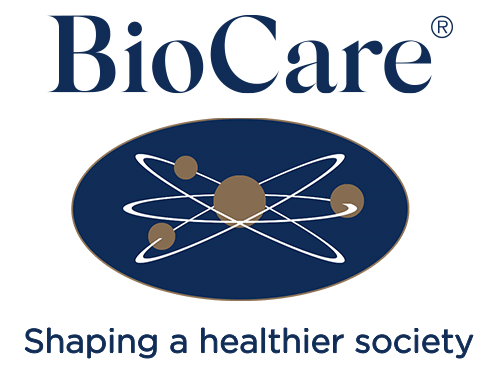
CAN PROBIOTICS HELP WITH ALLERGIES?
Share
Little by little the cold days are ending after a long winter, spring begins, and although for many it is their favorite time of year, there are those who begin to fear the arrival of typical allergic discomforts such as itching, watery eyes, sneezing, wheezing or hives.
Allergies or hypersensitivity of the immune system is something that has become more common every day and we would like to provide you with the necessary information to be able to face them.
What is allergy and how common is it?
An allergy is a response of the immune system to substances that should normally be harmless, such as pollen, food or house dust. Although for most people these substances (allergens) do not pose any problem, in allergic people it happens that their immune system identifies them as a “threat” and produces an inappropriate response. This is different from what happens in a food intolerance or sensitivity, in which symptoms such as bloating or gas are seen and does not involve an immune reaction.
In Chile, there is a high percentage of people who suffer from an allergic disease and this is increasing every year. The same occurs in the case of children, the diagnosis of allergic rhinitis and atopic skin is becoming more frequent, with food allergies being a cause of special concern.
Can probiotics help with allergies?

While allergy is a complex condition, and avoiding the allergen is the most effective solution, this is not always possible in daily life. Fortunately, today there is strong evidence showing that daily intake of a probiotic supplement can be of great help in the prevention and management of allergic symptoms.
There are several ways that probiotic supplements support the immune system. Research is growing every day regarding the connection between the integrity of the intestinal wall, the balance of the microbiome and the allergic response. Probiotic supplements train the immune system to provide a better response by strengthening the integrity of the intestinal wall, composition of beneficial intestinal bacteria, and managing inflammation. The probiotic strain Lactobacillus Rhamnosus has been shown to regulate the body's allergic response and reduce inflammatory markers.
A large-scale review conducted in 2018 showed that supplementation with probiotic supplements during the first weeks of pregnancy and in the first 3 to 6 months of breastfeeding reduced the prevalence of eczema in children by 22%. In addition, evidence was found to suggest that daily consumption of an Omega 3 supplement from 20 weeks of pregnancy to the first 3 to 4 months of breastfeeding was also highly influential in reducing the risk of allergies.
In other studies, it was shown that supplementation with a specific mixture of Lactobacillus and Bifidobacteria can help in the prevention of allergy in children, potentially reducing lifelong incidence. Infants (birth to 6 months) who consumed this probiotic combination were 57% less likely to develop atopic eczema compared to the placebo group, 44% less likely to develop allergic reactions to common allergens such as pollen, cow's milk, eggs and house dust. Finally, a general improvement was observed in the symptoms associated with those who already suffered from allergies.
It has been shown that maintaining adequate intestinal health is essential in the prevention and control of allergies, since our intestinal microbiota is responsible for largely managing the immune response, with probiotic supplements being the most important to use when want to support this system.
Learn more about Biocare Probiotics 👉 HERE
References
[i] EAACI. Tackling the allergy crisis in Europe - Concerted policy action needed. 2016 March.
[ii] Foods Matter. 2010. Mintel's Allergy and Allergy Remedies UK. Retrieved May 24, 2017, from Foods Matter: http: //www.foodsmatter.com/allergy_intolerance/miscellane...
[iii] Gupta RSA. Time trends in allergic disorders in the UK. Thorax, 2007, 62(1), 91-96.
[iv] Pawankar RCG. The WAO White Book on Allergy (Update 2013).
[v] Turner PJ. Increase in anaphylaxis-related hospitalizations but no increase in fatalities: An analysis of United Kingdom national anaphylaxis data, 1992-2012. J Allergy Clin Immunol, 2015; 135(4), 956-963. Retrieved 2017.
[vi] Kalliomaki M et al. Probiotics in primary prevention of atopic disease: a randomized placebo-controlled trial. Lancet. 2001; 357(9262):1076–1079.
[vii] Berger A. Th1 and Th2 responses: what are they? BMJ. 2000; 321 (7258): 424.
[viii] Clavel T & Haller D. Molecular interactions between bacteria, the epithelium, and the mucosal immune system in the intestinal tract: implications for chronic inflammation. Current Issues in Intestinal Microbiology 2007; 8(2):25-43.
[ix] Roberts JD et al. An Exploratory Investigation of Endotoxin Levels in Novice Long Distance Triathletes, and the Effects of a Multi-Strain Probiotic/Prebiotic, Antioxidant Intervention. Nutrients, 2016: 8 (733).
[x] Lescheid DW. Probiotics as regulators of inflammation: A review. Funct Foods Health Dis. 2014; 4: 299–311.
[xi] Pessi T et al. Interleukin-10 generation in atopic children following oral Lactobacillus rhamnosus GG. Clin Exp Allergy. 2000; 30 (12): 1804-8.
[xii] Garcia-Larsen et al. Diet during pregnancy and infancy and risk of allergic or autoimmune disease: A systematic review and meta-analysis. PLoS Med. 2018 Feb 28; 15(2).
[xiii] Allen SJ et al. Probiotics in the prevention of eczema: a randomized controlled trial. Archives of Disease in Childhood. 2014; 99(11): 1014–1019
